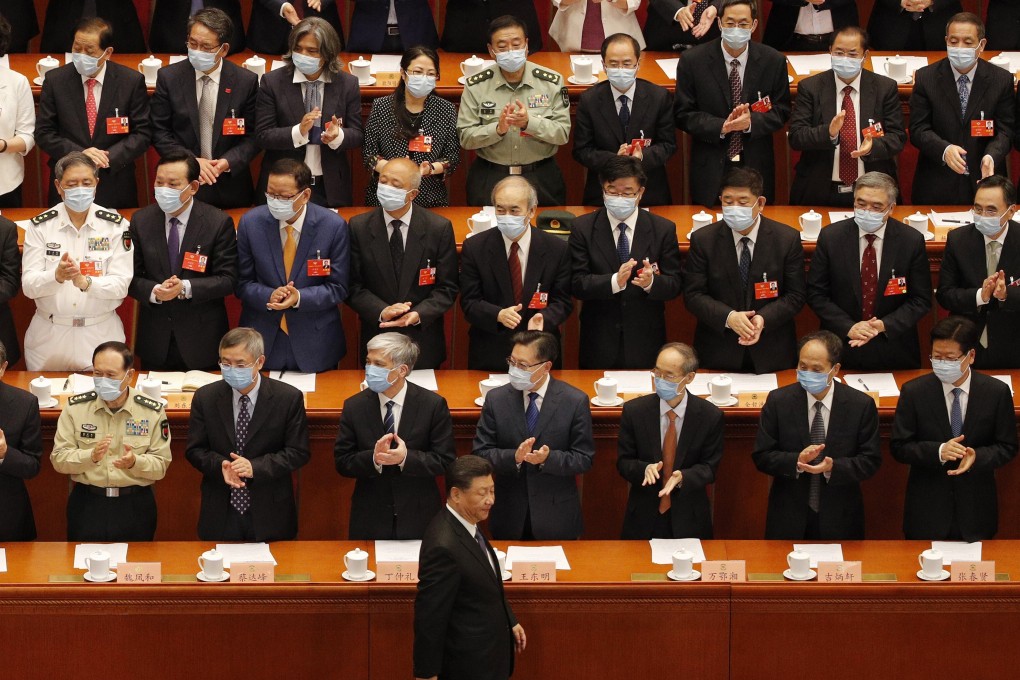Two Sessions 2020: National People’s Congress approves resolution to impose security law on Hong Kong
- China’s top legislature defines firm role for city’s leader to educate residents on sovereignty, draws line against independence advocacy
- Vote comes as US Secretary of State Mike Pompeo asserts Hong Kong is no longer suitably autonomous

“Regrettably, the current legal system and enforcement mechanisms for Hong Kong to safeguard national security are inadequate or even ‘defenceless’,” she said in full-page advertisements to appear the next day in local newspapers.

02:33
China’s top legislature approves national security bill for Hong Kong
Pompeo’s statement sent shock waves through Hong Kong’s political circles and triggered a blame game among political rivals over which side had precipitated the latest turn of events that would hurt the city itself.
Opposition leaders attacked the NPC for pressing ahead with the legislation, saying the pro-Beijing camp had failed to persuade the central government to respect the “one country, two systems” principle, under which the city was promised a high degree of autonomy.